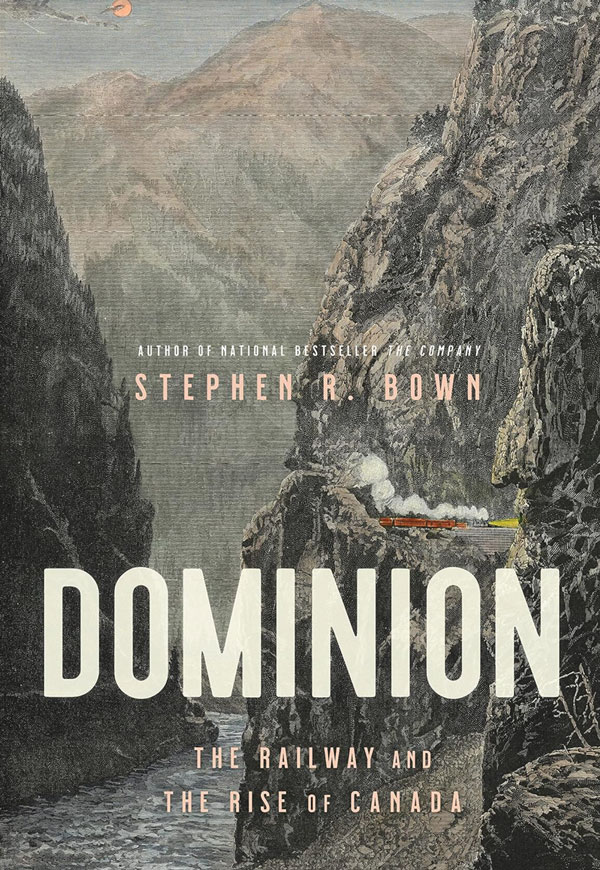There was a time not so long ago when everybody knew something about the building of the Canadian Pacific Railway and its importance to Canadian history. My childhood was a frenzy of centenaries—Confederation and the addition of new provinces and territories to the Canadian fold, the founding of the NWMP, the building of Fort Calgary, the two Riel insurgencies, and, as I entered adulthood, the driving of the last spike. My sons, on the other hand, absorbed little about the first two decades of Canadian nationhood in their school years, and I suspect the same is true of most Canadians under 40. So I was pleased to see the latest from Canmore-based Stephen R. Bown, author of a much-celebrated history of the Hudson’s Bay Company, The Company. His new book, Dominion, is a similarly readable, thoroughly researched look at the events surrounding the building of the railway, and the impact on both Canada and the Indigenous inhabitants of the land the new Dominion annexed and transformed.
“Pierre Berton wrote this book already!” an older reader might think. Both The National Dream and The Last Spike are still in print 50 years on, but they approach their material with a different sensibility than does Dominion. Berton’s books, written in the soft summer shadow of the 1967 Centennial, are largely celebratory. Bown, in the usual manner of contemporary historians, is interested in complicating the narrative as he writes it. What this means in practice is more space devoted to pre-Confederation BC, Chinese railway labourers, the Indigenous people of the Northwest, and an attempt to consider the actions of men like Sir John A. Macdonald and Lord Strathcona in the light of their effect on the less powerful.
I would have liked more consideration given to the effect of the railway and the Northwest colonizing project on English/French relations and on the Maritimes. Dominion at times sounds like it’s telling the story of Ontario, not Canada, moving west. Overall, though, Bown is more successful in integrating a larger number of voices into the CPR narrative than he is at making any sort of moral sense of the whole thing. That’s to be expected—if you don’t write colonial history as straightforward moral tragedy you’re left with a curious combination of celebration (building the railway was in fact an admirable achievement) and disparagement (the railway’s last spike was the last nail in the coffin of Indigenous sovereignty in the West). But this general difficulty doesn’t detract from Bown’s achievement. Dominion is a solidly written, thoughtful presentation of a crucial episode in Canadian history for a new generation. I look forward to seeing what story Bown tells next.
Alex Rettie is a long-time reviewer for Alberta Views.
_______________________________________


